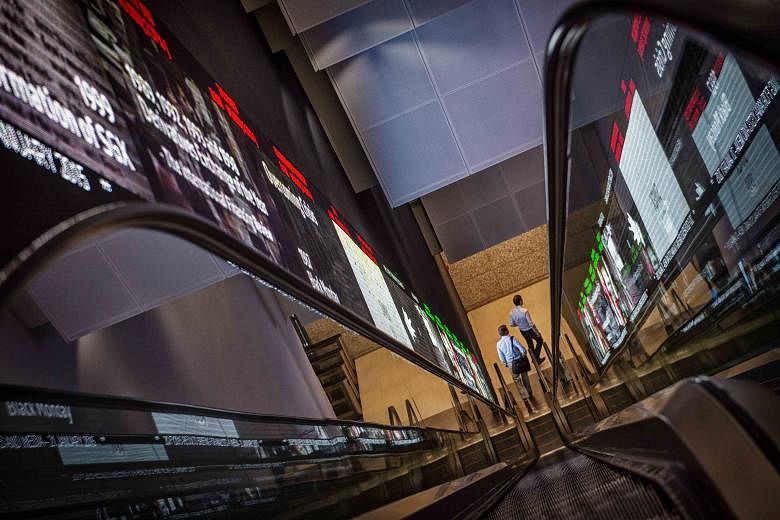Remisiers will have to go back a long way to find a year that started as badly as this one.
The Straits Times Index is already down 7.2 per cent in the first two weeks of this year, and that after last year's 14.3 per cent loss.
"This is one of the worst starts I've ever seen in a trading year," remisier Desmond Leong said. "I think this year will be a volatile one because many factors are against us.
"Everyone is on notice about China's slowdown, there is turmoil in the Middle East, the United States seems to be slowing down, and oil prices are still slumping."
While the magnitude of the sell-off has caught many investors on the back foot, remisiers agree that it is not as bad as the 2008 financial crisis.
"There is no single trigger factor like the collapse of Lehman Brothers," said remisier Chung Chun.
"The global economy is slowing down and there are reasons to sell, but not to the extent that we saw in the great recession.
"It's unusual to see this happening so early in the year. January is when you usually see buying activity. During good days, we get about 10 or so calls a day; now, about five. But the market volume has also shrunk over the years, so the number of calls has been dropping," he noted.
Mr Leong sees a new urgency in the pace of selling and bigger lot sizes sold: "In December, for instance, when things were quieter, investors could sell 100 lots here and there. Now, they are selling in 1,000 lots and the sales are much faster."
As crude prices slump, more investors are shorting oil-related counters such as Sembcorp Marine and Keppel Corp.
Others are more wary of catching falling knives, Mr Leong said. "Some are in wait-and-see mode, trying to bottom-fish blue chips such as CapitaLand and Keppel because these counters have dropped so much. But some small retail investors are already losing faith and not looking at the market now."
Mr Chung said dollar-cost averaging has also gained traction, with more clients now investing between $10,000 and $20,000 per transaction, and at a slower pace, instead of $100,000 to $200,000 a pop when times were better.
Many are waiting for the STI to fall further before bargain-hunting banks, utilities and property counters.
Mr Yong said: "It has been a very pessimistic start, but a good opportunity to acquire stocks on the cheap if you have cash."
Still, according to Society of Remisiers Singapore president Jimmy Ho, the days of remisiers raking in several thousands of dollars in commissions a month are a distant memory, with more making salaries comparable to those of cleaners. He estimates there are 2,300 remisiers left after what he called an "alarming" escalation in resignations in the second half of last year as retail participation slumped and more failed to meet their annual sales quota.
"The resignations are so many that some company directors tell those resigning to say they are retiring, (not) resigning," Mr Ho said.
"When times were good, our phone handsets gets so hot we have to transfer it from one ear to the next.
"Now, remisiers are hoping to get just one to two transactions a day. It's very pitiful," he said.


